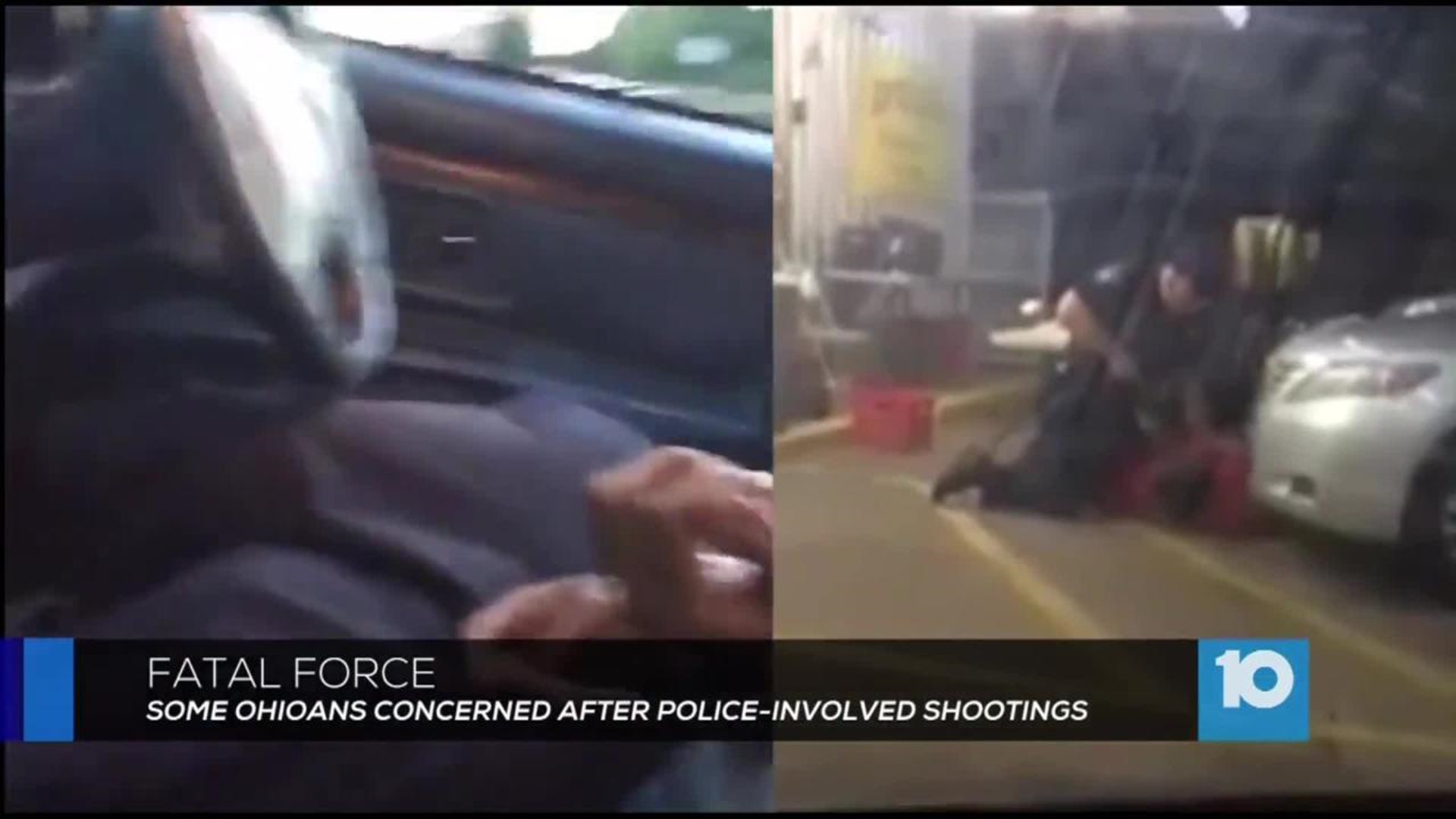Yaves Ellis is a man of faith who takes his message of hope to the airwaves on Joy 107.1 radio.
It’s a job that this week, is near impossible.
"It's very difficult,” he said. “Because my goal is to keep people inspired, to give them hope. But when you look at those videos, there's no inspiration in that. There's no hope in that."
The videos he refers to show two men he didn't know, in cities not near Columbus, being killed by police officers.
"As a black man in America, I am angered, and I am also afraid because that could have easily been me," Ellis said.
He said very early in his life, he was taught by his parents to fear police. A fear that he says has been reinforced by personal experiences and incidents like the ones this week.
“Normally as you grow up, there are certain things that don't scare you anymore. You're not afraid of the dark anymore. The bogeyman is not real to you, you can watch scary movies. That particular narrative never changes,” Ellis said. “Because as you get older, you're exposed to it a lot more, you see it a lot more. You come in contact with them a lot more."
It's a fear he says he lives with, even as a 30-year-old man.
"Even me, being a pastor, somebody who is spiritually grounded, somebody who has faith, who knows that God is protecting me, there is still an overwhelming fear when I get pulled over,” he said. “I have a concealed carry permit, I abide by the law, but when I get pulled over, I feel as if I did something wrong."
Debera Diggs has been a neighborhood leader on the south side for decades. She's worked closely with police to help keep her neighborhood safe.
"We've had some really good, really great CPD officers,” she said. “I think they're all good. Because it takes a certain character to be able to put on a bulletproof vest and a gun to go to work every day, not knowing who or what you might encounter."
But watching two more men of color die by a police officer's gun tears at her.
"My soul cries out. You see sons, brothers, fathers, nephews,” she said. "Even though I don't know them personally, it's still close. It still hurts. It's still painful. It’s still confusing. It's still sad. It is just so hurtful."
Both she and Ellis believe the problems of police-minority relations are deeply rooted, born of fear and misunderstanding, on both sides.
"So when it comes to our community, it's about us re-teaching our children how to respond to law enforcement,” Ellis said. “It’s also about teaching law enforcement how to respond to the community the correct way, to understand that the issues and needs that are going on in our community may be different than where they grew up."
They say the work to heal those fractures has to start long before a traffic stop.
"Having marches are great,” Diggs said. “Having conversations are good. Having relationships are better."

